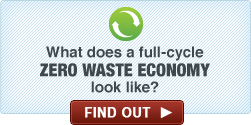If it weren’t for PeopleFund, Ecology Action of Texas might not have had the resources to launch its satellite recycling program for underserved communities—and that story is just one of many that epitomizes the organization’s mission.
Launched in 1994 as the Austin Community Development Corporation to serve historically underutilized and minority-owned businesses in East Austin that lacked access to capital, PeopleFund has morphed into a lender to high-risk small businesses across a five-county region . Since its founding, the organization has funded more than $26 million in loans to 400 area businesses and has helped create nearly 2,300 jobs in the process.
“I can honestly say that I love my job,” says Lesa Cox, director of lending at PeopleFund. “When I call people, they want to talk to me. We have the ability to make a difference—whether it’s helping someone start a business, stay in business, or grow a business.”
Supporting the community
PeopleFund is a unique concept, but not just because the organization gives small businesses the power to grow when they might not qualify or have access to traditional loans. More than simply a high-risk lender of last resort, PeopleFund assists businesses that benefit the community as a whole.
Ecology Action of Texas is one example. The nonprofit is a community stalwart that operates recycling drop-off and processing centers in downtown Austin and across Central Texas, offers pick-up recycling services for businesses, hosts recycling events, and offers community education in recycling and waste prevention.
An already established organization—Ecology Action will celebrate its 42nd year in 2012—the nonprofit has worked with PeopleFund several times to get loans for equipment and expansion.
“People ask for our services—the demand is always so much greater,” says Scott Crow, co-director, Ecology Action of Texas. “We have been able to buy equipment we needed and establish unstaffed satellite recycling centers in areas of need—especially rural communities where recycling programs didn’t exist.”
Making an impact
Cox says organizations like Ecology Action of Texas are ideal candidates for PeopleFund business loans because of the impact they have on the community .
“We’re relatively new when it comes to ‘green’ lending, but we saw a gap with green-focused businesses,” she says. “We should all encourage that as lenders, and if we can help contribute to the community, keep someone employed, and create jobs, it’s important to all of us.”
For example, Cox says that traditional lenders often have policies against funding businesses that might be perceived as “risky,” such as contracting, nonprofits, startups or restaurants. Not so with PeopleFund.
“Our typical client, if any, is a business owner who has been denied financing,” she says. “About 35 percent of our clients come to us from banker referrals—we give the banks an alternative to saying no to what could be a viable business.”
Second chances
PeopleFund loans and lines of credit range from $1,000 to $250,000, with the average loan between $25,000 and $100,000. If the organization finds unacceptable items in an application or credit report, it gives business owners the opportunity to fix them and reapply—instead of turning them away.
Cox, who worked in commercial and small business banking for 30 years before joining PeopleFund, says that’s a novel approach.
“When we do have to decline, we offer a lot of counseling around that—helping business owners understand what it takes to get an approval in terms of documentation and requirements,” she explains. “There’s no immediate benefit for traditional banks to help with credit worthiness, but it’s a different mindset for us.”
Graduating to success
That mindset is what has helped organizations like Ecology Action of Texas grow and expand. With demand for services increasing because of new city solid waste recycling ordinances, the nonprofit is expanding into composting—collecting food scraps from businesses and residential areas to turn it into soil—as well as education and programs around small-scale farming.
“It’s a big growth area, and we have a demand for it,” says Crow. “It was the same with our satellite recycling services, and the funding was critical to make that happen. The community wouldn’t have services without it.”
In the end, Cox is most proud when businesses become success stories while also serving important community needs.
“We want to help businesses through the startup stage, tough period, or turnaround, and then, when they’re successful, refer them back to a banker who can offer better terms than we can as a high-risk lender,” says Cox. “Our goal is to ‘graduate’ them away from us—that’s our mission fulfilled.”









